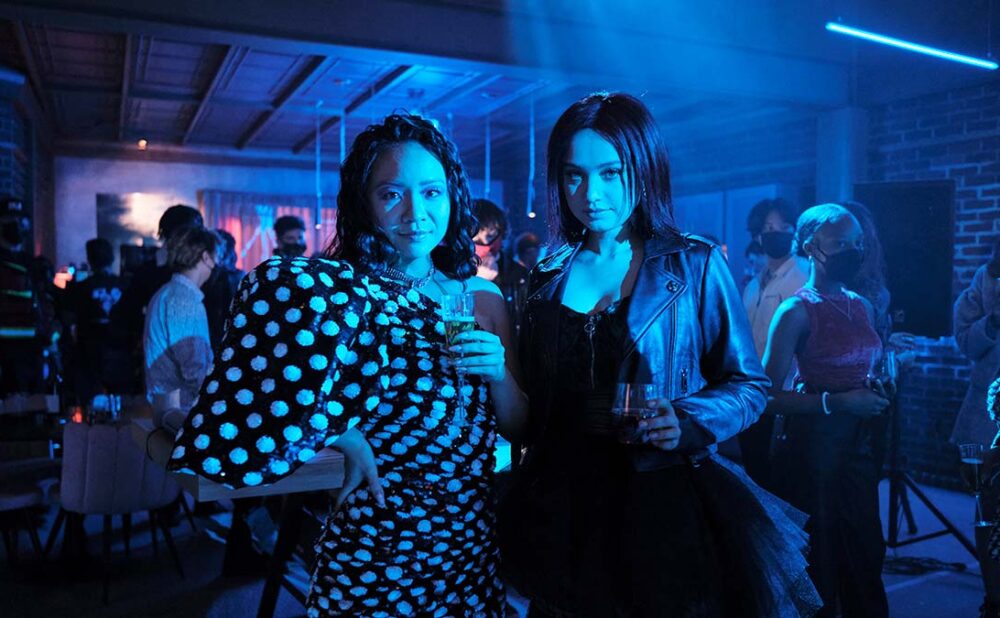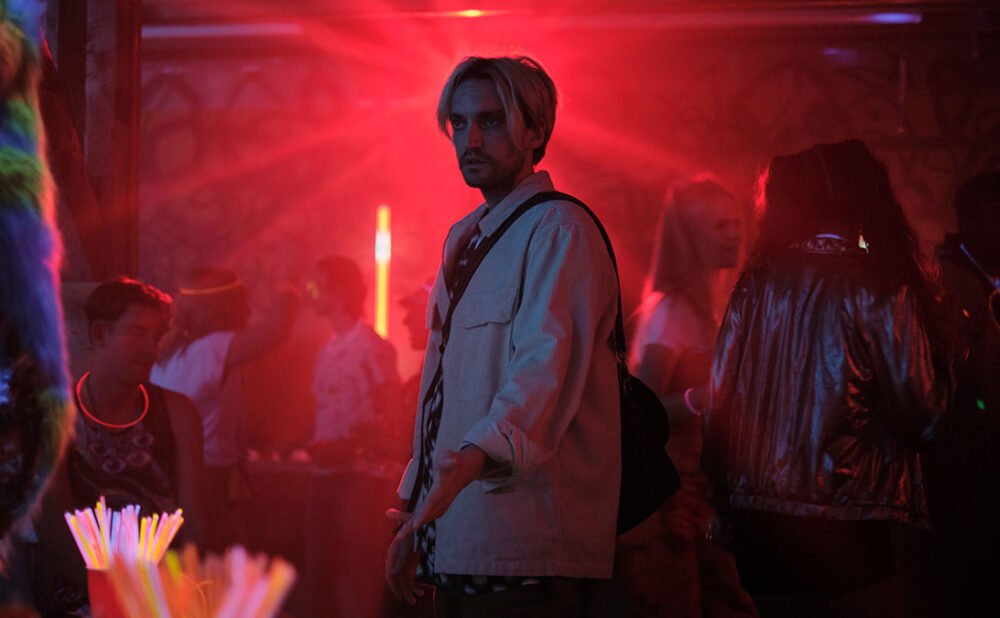Fake It Till You Make It
Fakes is the realest show about fake IDs
Where: CBC Gem (Canada), Netflix worldwide
What: Series, 10 episodes, 25 mins.
When: Now
Genre: Comedy
Why you should watch: Based loosely on real events, Fakes is uproariously funny as it follows two Vancouver-based teenaged best friends becoming the best fake ID purveyors in North America. The show delights in shirking an authoritatively reliable narrative in favour of two unreliable narrators endlessly outbidding each other for the right to truth. The two leads have stunning chemistry, pitch-perfect comedic timing and hilarious physical comedy.
Fakes, the CBC and Netflix joint endeavour, is a hilarious masterclass in how to belie audience expectations. A comedy series ostensibly about two Vancouver-based teenage girls forging the largest fake ID empire in North America, Fakes swiftly reveals its vulnerable and meta beating heart a few fourth-wall-breaks in. Really, the show is a delicious revelation of the duplicitous — and, therefore, human — nature of authenticity.
“I think what is really interesting about the way that this story is being told is that it is going between perspectives,” Emilija Baranac, who plays Zoe, one-half of the entrepreneurial duo, tells me over the phone. “In life, we tend to remember things a little differently. Sometimes, you’ll talk with a friend and be like, ‘Oh yeah, well, you know, we went home’ and then they’re like, ‘No, we didn’t, we went to a park,’ and you’re like, ‘Wait, what?’ I thought it was very interesting to play into that.”
Jennifer Tong, who plays Becca, is also on the phone, and the two young actors take turns answering my questions from Vancouver, B.C. In the show, Becca and Zoe strive to convince us of what really led to their fakes empire collapsing with the police raid that shatters through the first episode.
As the girls take turns helming alternate episodes with each of their versions of what went down, they simultaneously knock loose the choke-hold reliability has on traditional storytelling. Unapologetically fallible stories, the girls and the show say, will always be more fun and compelling than the cold authority of truth.
“The characters have been so fleshed out and they’re so complex, and that’s something that I really appreciated,” Tong says. “No character is perfect; you really see each character make mistakes. And I think, as someone watching, we can all relate, you know? We’re pretty messy as humans, and that’s okay.”
Indeed, Fakes’s framing never seems to pass judgement on the two characters; rather, it leaves it up to its two protagonists to figure out the moral murkiness of their work as they change and grow out of their archetypes, discovering new powers within themselves and each other. The show begins by presenting Zoe as the traditionally familiar nervous and goofy nerd, a girl who’d rather stay home and study than go out partying. Becca, meanwhile, is presented as the superficial, rich, potentially mean and uncaring airhead who cheats on her doting boyfriend. We expect these girls to stay within their archetypes à la Mean Girls characters, but they continually upturn our expectations to reveal depths, nuances and intelligence within themselves — and, by extension, the plot.
As the show progresses, we fall in love with Becca for being more than the callous girl we initially thought she was. Becca loves and cares not only for Zoe but also her family.
“I really love the fact that Becca is a regular teenager who’s going to regular school,” Tong says. “She just happens to be Asian. And the story is not about her being Chinese and, you know, she’s not learning how to do kung fu or run a Chinese restaurant or anything like that. I think that Rebecca really rebels against the stereotypes that are often pushed upon Asian women. I found that really, really refreshing.”
We fall in love with Zoe, too, as she becomes more confident in herself. There is a history of alcoholism in Zoe’s family and she is haunted by her father’s lies and endlessly apprehensive and afraid that her older brother will follow the same fate.
“Everyone is going through something in one way or another in this show, and I think that it was important to show that relationship with her family,” Baranac says.
Both Becca’s and Zoe’s arcs challenge not only our preconceived notions of what teens are like but also their families’ and friends’ notions. By showing itself to be so much more than about a rich girl and a nerdy girl who accidentally fall into the illegal business of selling underage kids fake IDs, Fakes is about two friends actively choosing to sell the IDs; it’s about them taking agency of their lives and thereby redefining who can wield power, who ought to tell the truth and what the truth even looks like. And in this way, Fakes is one of the more genuine depictions of teen girls in recent years. This is why we love authenticity, Fakes seems to say — it’s always tricky and ungraspable but oh-so fun to chase. “It’s a lot of different steps,” Tong says of the challenging fake-ID-making process. “And Rebecca and Zoe really master it. They’re smart girls.”
And Baranac echoes the statement. “They’re smart,” she says.









